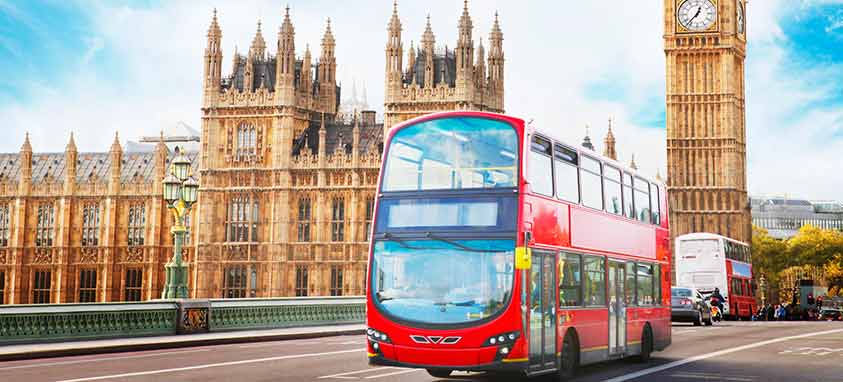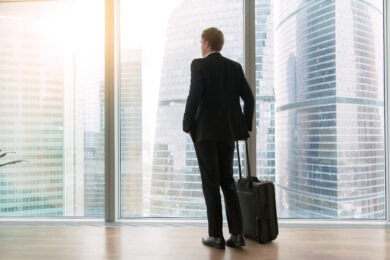The hashtag has become such a polarizing symbol. On the surface, its a stereotypical, overused and sometimes confusing way for younger generations to communicate on similar topics. It’s the cause of keyboard wars on discussions ranging from politics to media drama on Twitter and other social outlets. But it has also served as a means of community and unity after tragedy and definitive moments, bringing people together from all over the world.
The mess of misinformation that spreads after news breaks is harder than ever to control, and that’s exactly what London was faced with when the world learned of Brexit: the news that London would be departing from the European Union.
The Problem:
Very few people, especially outside of Europe, were aware of Brexit’s happening until it was too late. The word was out and a wealth of questions and panic were mounting about what this would mean for locals, for international travel, and for business.
When the news first broke, David Huether, senior vice president of research for the U.S. Travel Association, told Smart Meetings, “I expect that Brexit will affect inbound visitation from the United Kingdom to the United States to some degree this year, but more fully in 2017.”
London & Partners, the city’s official promotion company, had to find a solution that would quickly quell worries, reverse misconceptions and create awareness to everyone that London isn’t going anywhere.
The Facts:
On June 23, a referendum was held with a turnout of 71.8 percent, with more than 30 million people voting. Leave won by 52 percent to 48 percent.
The separation of the U.K. from E.U. will not happen until at least 2019. For the U.K. to leave the E.U., it has to invoke an agreement called Article 50 of the Lisbon Treaty which gives the two sides two years to agree the terms of the split. Theresa May has confirmed this will be done by the end of March 2017, meaning the UK will be expected to have left by the summer of 2019.
One of the predictions immediately following the news was a drop in the value of the pound, which has already happened. The U.S. dollar is currently worth about 15 percent more.
Given the crucial role of London as a financial hub, there’s interest in how many jobs may be lost to other hubs in the E.U. Four of the biggest U.S. banks have committed to helping maintain the City’s position.
The Solution:
#LondonisOpen became the social campaign the visitors bureau decided on to educate the world about London post-Brexit. The phrase was meant to inform everyone that London is open for business as well as leisure travel.
The best thing that could have possibly happened to really give the campaign legs happened overnight: mayor of London Sadiq Khan adopted it.
Good to welcome @johnpodesta to London and discuss how #LondonIsOpen to US trade, investment & tourism. pic.twitter.com/eHISot8Vzu
— Sadiq Khan (@SadiqKhan) October 21, 2016
“Whilst we do not yet know what sort of deal the U.K. will secure from the E.U., we have been pleased at how both the Mayor of London and the U.K. government have responded to the vote and moved quickly to reinforce a message that the UK remains open for business,” says Andrew Swanston, head of sales for ExCel London‘s North American Market. “The creation of new ministry dedicated to international trade is a welcome sign that the Government remains internationally focused and that can only be a good thing for the meetings and events market.”
The campaign exploded on social media, and the CVB worked to gain partnerships with hotel brands and larger media outlets to get the word out, including the NFL, which hosted the Los Angeles Rams and New York Giants at Twickenham Stadium this season.
Great to watch Twickenham’s first ever #NFL game with @RamsNFL & @Giants! #LondonIsOpen pic.twitter.com/vcdSLdc3JN
— Mayor of London (@MayorofLondon) October 23, 2016
The campaign worked to highlight all that the city had to offer, including:
–Its reputation as a global financial hub
–It’s the digital capital of Europe, with 40,000 digital tech companies (and recently considered the U.K.’s Silicon Valley)
–A center for life sciences
–Home to major headquarters and corporate decision-makers
–Office hours overlap with myriad countries, making 99% of the world’s GDP
–City residents speak over 300 languages
Despite a dramatic initial reaction, the effects thus far have been minimal.
“So far, there has been no change to our domestic business,” says Swanston, “and, if anything, the referendum result has been positive for our international clients–a number of whom have called us to arrange early payments for their events in order to take advantage of the preferential exchange rate. We have had no cancellations and our forward diary continues to look very healthy. In the short-term, the weak pound will be good for the U.K. visitor economy, including the meetings and events market.”
ExCel London is just one of the many venues looking toward the future of events in London. A sprawling multipurpose venue, ExCel offers spaces for events of every size and purpose, including state-of-the-art conference facilities.
“London always has and always will be a great place to live, work and do business,”
Swantson says. “ExCeL London looks forward to being at the forefront of London’s post-EU success story, to continue hosting world-leading events, and to reaping the benefits of a Brexit boost.”




